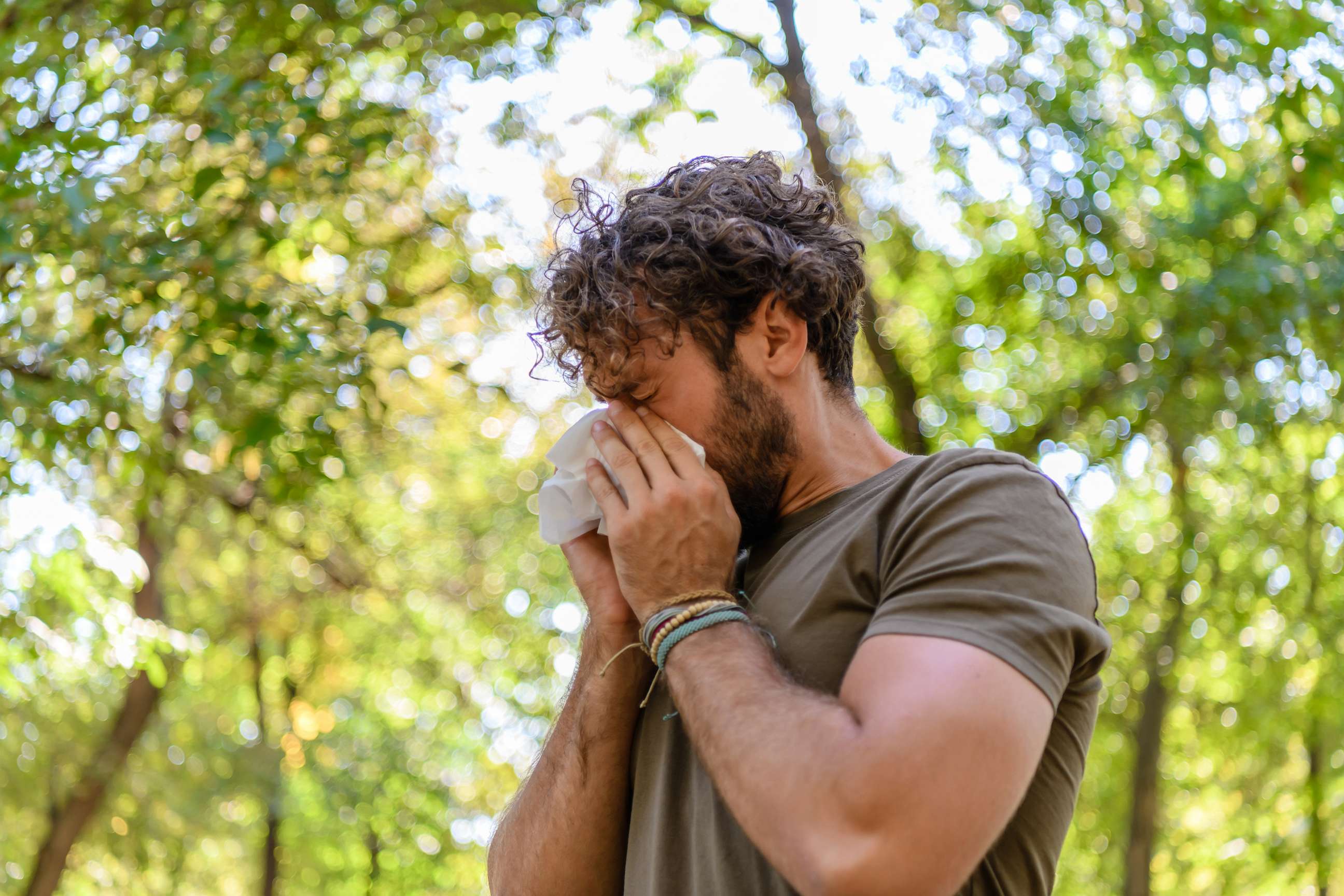Allergy season is getting longer in over 170 cities
It's another way that climate change can affect health, experts said.
Temperatures have been on the rise in 203 U.S. cities since 1970, leading to longer allergy seasons in over 170 cities across the U.S., a new report by Climate Central finds.
Climate change is bringing an earlier spring and later fall, the report found. This means a longer growing season for plants, allowing more than two weeks longer on average to grow, flower and release pollen.
It's another way that climate change can affect health, experts said.
"The plants can grow earlier and they can pollinate earlier. Allergies are just getting worse and worse", Dr. Kari Nadeau, chair of environmental health and professor of climate and population studies at Harvard School of Public Health, told ABC News.
Warming weather and allergy health
There are three general pollen seasons as described by the American Academy of Allergy Asthma and Immunology. Trees begin pollinating in the spring (with birch, cedar, cottonwood, and pine the largest allergy triggers). Summertime sees the pollination of grasses. Weeds are the biggest culprit of allergy triggers in the fall, with ragweed being the biggest offender.

All of those seasons are affected by the changing climate, experts said.
Researchers have been tracking the patterns over the past few years. Pollen levels are peaking earlier and pollen counts have worsened over the years, several previous studies reported. Changes in the duration and intensity of pollen season affect allergic disorders like seasonal allergic rhinitis (hay fever) and asthma.
This new study measured the number of days between the last day of freezing temperature in January through the first day of freeze in December.
It found that, on average, allergy season grew by more than two weeks. Allergy season lengthened by at least a month in over 30 cities. Allergy season in Reno, Nevada, increased by 99 days, one of the biggest increases in the country. Overall, cities in the western U.S. saw the largest increase in allergy seasons by nearly a month, followed by the Southeast, Northeast, Southern, and Central U.S. regions.
Other studies have also predicted that in 2040, the average pollen counts will be double what they were in 2000.

"It's a nonstop onslaught of pollen in the air and the duration the levels of pollen that we're seeing are higher than ever before", Dr. David Stukus, pediatric allergist and immunologist at Nationwide Children's Hospital, told ABC News.
Managing allergy triggers this upcoming pollen season
These climate changes can impact the health of individuals with allergies, according to the American Academy of Allergy, Asthma, and Immunology. Climate change, marked by shifts in warmer seasonal temperatures and more carbon dioxide and greenhouse emissions in the atmosphere, can affect how much pollen we are exposed to and increase the risk of experiencing allergy symptoms, according to the CDC.
The CDC reports that about one quarter of adults and 1 in 5 children of children in the US suffer from seasonal allergies and affects as many as 60 million people per year in the US.
According to the American Public Health Association, allergies cause about 3.8 million missed work and school days each year.
Symptoms of hay fever can occur during certain seasons or year-round, depending on the allergy.
To help manage allergy symptoms, the AAAAI recommends limiting outdoor activities during days with high pollen counts, keeping windows closed (at home or in the car) to keep pollens out, and taking a shower after coming indoors.
Local pollen forecasts and mold levels can be found through resources like the National Allergy Bureau, experts recommend.
People with respiratory illnesses like asthma may be more sensitive to pollen. According to the CDC, pollen exposure has been linked to asthma attacks and increases in hospital admissions for respiratory illness.
"This is a major problem, and it will only get worse if we do not limit climate change and limit carbon dioxide production from greenhouse gases", Nadeau says.
Kimberly Loo, MD is an internal medicine resident at New York-Presbyterian/Weill Cornell Medical Center, and a contributor to the ABC News Medical Unit.




